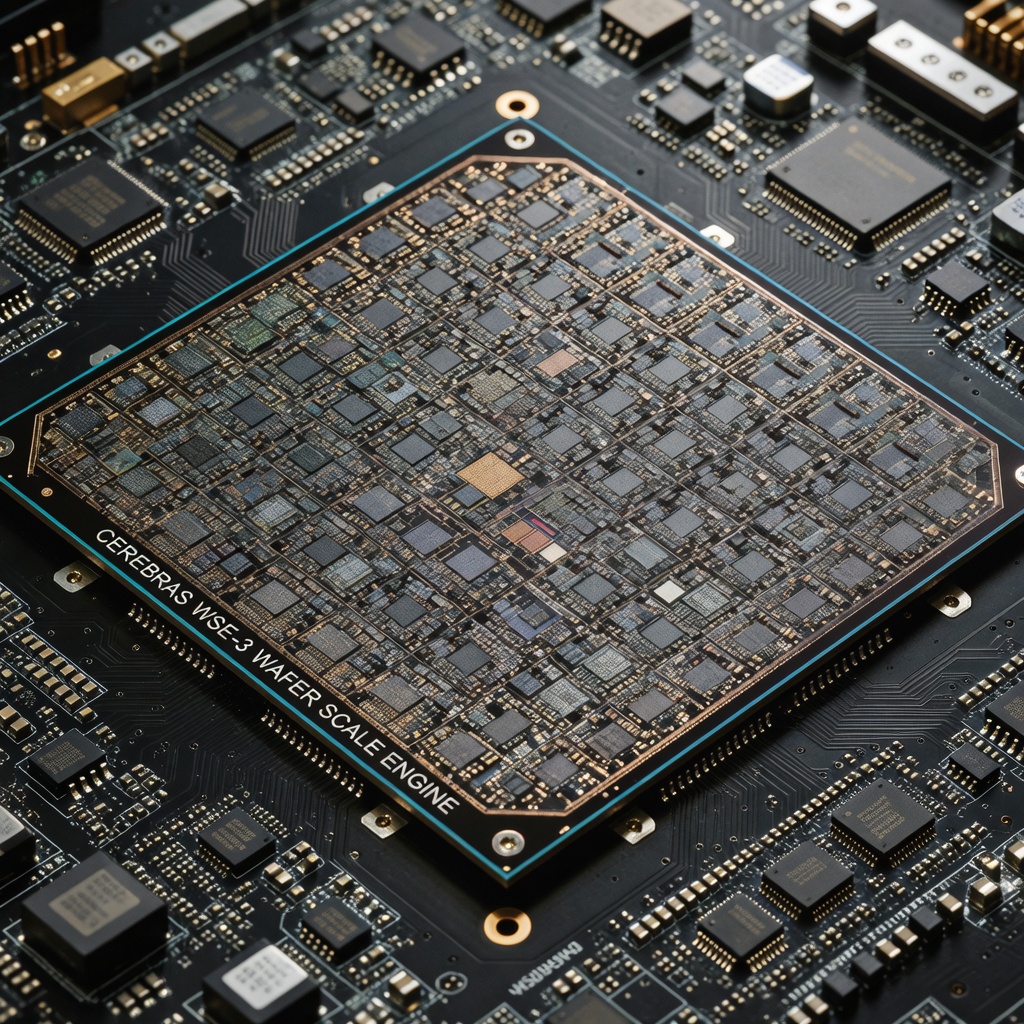
The Intersection of AI and Privacy: How DeepSeek and Amazon’s Policy Shift Are Redrawing the Global AI Landscape
The rapid evolution of artificial intelligence (AI) is reshaping industries and sparking geopolitical tensions. Recent developments involving DeepSeek, a Chinese AI startup, and Amazon’s decision to end a key privacy feature for Alexa, highlight the intricate dance between technological advancement and privacy concerns. Additionally, Eric Schmidt’s caution against a Manhattan Project for AGI underscores the delicate balance between innovation and global stability. This article explores the speculative connections between these events and their potential implications on the future of AI and privacy.
The Rise of DeepSeek and Its Implications:
DeepSeek, a Chinese AI startup, has emerged as a significant player in the global AI race. Its rapid development of cost-effective and efficient AI models has drawn attention from both investors and governments. However, DeepSeek’s success has also led to increased scrutiny, with OpenAI labeling it as “state-controlled” and advocating for bans on its models. This labeling and the subsequent proposals for restrictions suggest a growing tension between the U.S. and China in the AI sector, potentially leading to a new era of technological competition. As we ponder the implications of DeepSeek’s rise, we must ask: What are the potential consequences of a state-controlled AI entity, and how might this impact the global AI landscape?
The rise of DeepSeek also raises questions about the role of government in AI development. Can governments effectively regulate AI without stifling innovation, or will over-regulation drive development underground? Moreover, as AI becomes increasingly intertwined with national interests, how will countries balance the need for AI advancement with concerns over privacy and security?
Amazon’s Shift in Privacy Policy:
Amazon’s decision to discontinue the “Do Not Send Voice Recordings” feature for Alexa devices marks a significant shift in data handling practices. Starting March 28, all voice recordings will be sent to Amazon’s cloud, enhancing Alexa’s capabilities through generative AI but raising privacy concerns. This centralization of data could potentially be used to improve AI models, but it also opens up questions about user privacy and data security, especially given past settlements with the FTC. As we consider the implications of Amazon’s policy change, we must ask: What are the potential risks and benefits of centralized data collection, and how will companies balance user privacy with the need for data-driven innovation?
Furthermore, Amazon’s policy shift highlights the need for transparency in data handling practices. How can companies ensure that users are fully informed about data collection and usage, and what role should governments play in regulating these practices? The intersection of AI and privacy also raises questions about the potential for bias in AI decision-making. How can companies mitigate the risk of bias in AI systems, and what are the potential consequences of biased AI decision-making?
Eric Schmidt’s Caution on AGI Development:
Eric Schmidt, along with other experts, has argued against a Manhattan Project-style push for AGI, citing potential international instability. The paper “Superintelligence Strategy” proposes a defensive approach, emphasizing the need to deter adversarial AI development rather than engaging in an aggressive race. This stance highlights the risks of unchecked AI development, including the possibility of cyberattacks and the escalation of geopolitical tensions. As we consider Schmidt’s warnings, we must ask: What are the potential risks and benefits of a rapid AI development, and how can we balance the need for innovation with concerns over global stability?
Schmidt’s caution also underscores the need for international cooperation on AI development. How can countries work together to establish common standards and guidelines for AI development, and what role should international organizations play in regulating AI? The potential for AI to exacerbate existing social inequalities is also a concern. How can we ensure that AI development is equitable and inclusive, and what are the potential consequences of unequal access to AI technologies?
Connections and Implications:
The convergence of these events suggests a complex interplay between technological advancement, privacy, and geopolitics. DeepSeek’s rise challenges U.S. dominance in AI, prompting reactions like OpenAI’s call for bans. Amazon’s policy change reflects the trade-off between enhanced AI capabilities and privacy, potentially setting a precedent for other companies. Schmidt’s warnings add a layer of caution, urging a measured approach to AGI development to avoid international conflict. As we consider the connections between these events, we must ask: How will the intersection of AI and privacy shape the future of technological development, and what are the potential implications for global stability?
Cause and Effect Chain:
1. DeepSeek’s Success: Leads to increased government attention and potential restrictions, as seen with OpenAI’s proposals.
2. Amazon’s Policy Change: Centralizes data, enhancing AI capabilities but raising privacy concerns.
3. Schmidt’s Warnings: Highlight the risks of aggressive AI development, advocating for defensive strategies.
Possible Outcomes:
– Stricter Regulations: Governments may impose stricter data laws to protect privacy while fostering innovation.
– AI Arms Race: The U.S. and China might engage in a competitive AI race, potentially leading to breakthroughs but also increasing tensions.
– Global AI Leadership Shift: DeepSeek’s challenges to U.S. dominance could shift the global AI landscape, with China gaining prominence.
Conclusion:
The intersection of AI and privacy, as seen through DeepSeek’s rise, Amazon’s policy shift, and Schmidt’s cautionary stance, paints a complex future. As AI continues to evolve, balancing innovation with privacy and geopolitical stability will be crucial. The path forward may involve international agreements, stricter regulations, and a cautious approach to AGI development to navigate the challenges and opportunities AI presents.
Links and Summaries:
1. DeepSeek’s Rise and Government Scrutiny
2. Amazon’s Privacy Policy Change
3. Eric Schmidt’s Policy Paper
This speculative analysis underscores the need for a nuanced approach to AI development, considering both technological potential and ethical implications. As we move forward, it is essential to address the complex questions and concerns surrounding AI and privacy, ensuring that innovation is balanced with responsibility and a commitment to global stability.
To further explore the connections between AI, privacy, and geopolitics, we can examine the historical context of technological development and its impact on international relations. The development of nuclear weapons, for example, led to a era of mutually assured destruction, where the threat of retaliation prevented the use of these weapons. Similarly, the development of AI could lead to a new era of technological competition, where the pursuit of innovation is balanced with the need for global stability.
Ultimately, the future of AI and privacy will depend on our ability to navigate the complex interplay between technological advancement, privacy, and geopolitics. By considering the potential risks and benefits of AI development, we can work towards a future where innovation is balanced with responsibility, and the benefits of AI are shared by all.
In conclusion, the intersection of AI and privacy is a complex and multifaceted issue, with far-reaching implications for the future of technological development and global stability. As we move forward, it is essential to address the complex questions and concerns surrounding AI and privacy, ensuring that innovation is balanced with responsibility and a commitment to global stability.
For more information on the topics discussed in this article, please visit the following sources:
– TechCrunch
– MIT Technology Review
– Harvard Business Review
By exploring the connections between AI, privacy, and geopolitics, we can gain a deeper understanding of the complex issues surrounding these topics and work towards a future where innovation is balanced with responsibility and a commitment to global stability.
What do you think are the most significant implications of the intersection of AI and privacy? How do you think we can balance innovation with responsibility and a commitment to global stability?
Please share your thoughts and opinions on the topics discussed in this article, and let’s continue the conversation on the future of AI and privacy.






Crazy and Exciting Times Ahead
The news about Stevie Wonder headlining at Lytham Festival 2025 is just incredible. The legendary musician will join US rockers Kings of Leon and Justin Timberlake for an unforgettable night, marking a momentous occasion in music history.
However, amidst all the excitement, I am compelled to draw attention to something more pressing – the intersection of AI and privacy, as discussed in this article. DeepSeek’s rapid development and Amazon’s shift in policy have significant implications on our global stability and security.
As someone with experience in technology and innovation, I can attest that these developments are not just about technological advancements but also about our collective responsibility towards protecting individual rights and freedoms.
One of the most pressing concerns is the centralization of data and its potential misuse by governments or malicious entities. Amazon’s decision to discontinue the ‘Do Not Send Voice Recordings’ feature for Alexa devices raises a lot of red flags, especially considering past settlements with the FTC.
In today’s world, where AI is becoming increasingly pervasive in our daily lives, it’s essential that we prioritize transparency and accountability in data handling practices. Companies must ensure that users are fully informed about data collection and usage, and governments should play a more active role in regulating these practices.
Ultimately, the future of AI and privacy will depend on our ability to navigate this complex interplay between technological advancement, privacy, and geopolitics. I believe that by engaging in open discussions and working together towards a common goal, we can create a future where innovation is balanced with responsibility and a commitment to global stability.
What are your thoughts on the intersection of AI and privacy? How do you think we can balance innovation with responsibility and a commitment to global stability?
I must commend Bryson for shedding light on the pressing concerns surrounding AI and privacy, and I appreciate the depth of insight he brings to the table. However, as I delve into the mysteries of the digital realm, I find myself pondering the intricacies of static electricity, and how it can be a metaphor for the unpredictable nature of technological advancements. As someone who’s always been fascinated by the unknown, I recently stumbled upon an article on Unlocking the Secrets of Static Electricity that has left me with more questions than answers. It’s intriguing to consider how the principles of static electricity, as discussed in the article, might be applied to the realm of AI and privacy, perhaps revealing new perspectives on the delicate balance between innovation and responsibility. Can we draw parallels between the unpredictable sparks of static electricity and the unintended consequences of AI developments, and if so, how might this inform our approach to mitigating the risks associated with AI?
Bryson, while your concerns about AI and privacy are valid, I challenge the notion that centralization of data is inherently dangerous—couldn’t it also enable more robust security measures if regulated properly? As someone who values innovation but also champions transparency, I believe the real issue lies in the lack of enforceable global standards, not just corporate decisions like Amazon’s. Shouldn’t we focus on creating a framework that ensures accountability across the board, rather than vilifying progress? After all, isn’t the balance between innovation and responsibility a shared responsibility, not just a corporate one? Let’s push for systemic change, not just critique the symptoms.
I couldn’t agree more with Bryson’s insightful commentary on the critical issue of AI and privacy. As someone who has been following the developments in this field with great interest, I believe that it’s essential to acknowledge the concerns raised by Bryson and amplify the conversation.
The intersection of AI and privacy is indeed a pressing concern that requires immediate attention. The rapid advancements in AI, exemplified by DeepSeek’s progress, are undoubtedly exciting, but they also bring forth significant challenges. The centralization of data and its potential misuse by governments or malicious entities is a red flag that cannot be ignored. Amazon’s decision to discontinue the ‘Do Not Send Voice Recordings’ feature for Alexa devices, as Bryson pointed out, is a stark reminder of the need for greater transparency and accountability in data handling practices.
As someone who values the importance of individual rights and freedoms, I believe that it’s crucial that we prioritize the protection of our personal data. The fact that AI is becoming increasingly pervasive in our daily lives makes it even more essential that we address these concerns. I recall a study that revealed that the average person generates around 1.5 GB of data every day, which is a staggering amount of information that can be potentially misused if not handled properly.
Bryson’s emphasis on the need for companies to ensure that users are fully informed about data collection and usage is a point that cannot be stressed enough. It’s essential that we have open and honest discussions about the implications of AI on our privacy and work towards creating a future where innovation is balanced with responsibility.
Personally, I believe that the future of AI and privacy will depend on our collective ability to navigate this complex interplay between technological advancement, privacy, and geopolitics. As a optimist, I remain hopeful that by engaging in constructive conversations and working together towards a common goal, we can create a future where technology serves humanity, rather than the other way around.
I’d like to add that it’s not all doom and gloom; there are many organizations, governments, and individuals working tirelessly to ensure that AI is developed and deployed in a responsible manner. For instance, the development of AI for social good, such as in healthcare and education, is a promising area that holds great potential for positive impact.
Ultimately, I believe that Bryson’s call to action is one that we should all heed. By working together and engaging in open discussions, we can create a future where innovation and responsibility go hand-in-hand, and where our individual rights and freedoms are protected. I’d love to hear more thoughts on this topic and explore ways to balance innovation with responsibility and a commitment to global stability.